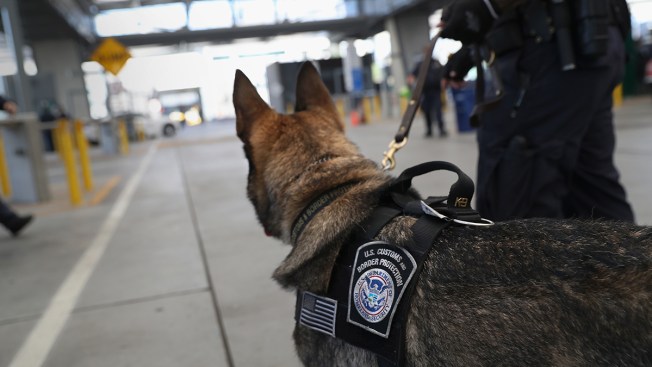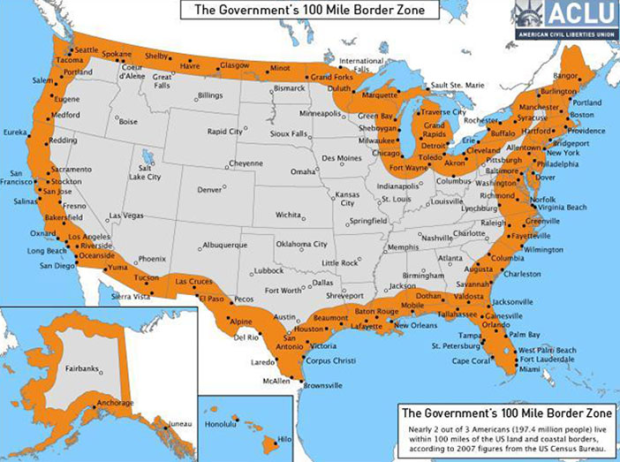
A U.S. Customs and Border Protection K-9 unit waits to check vehicles in San Ysidro. Dogs like this are used at the checkpoints along I-5, I-8 and I-15.
U.S. Customs and Border Protection officers may ask questions to verify your nationality during stops at the Interstate 5 checkpoint.
NBC 7 has received reports from some drivers who say they were surprised to be faced with questions about their citizenship when crossing through the CBP checkpoint, located in San Clemente, north of Camp Pendleton.
The vehicle inspection station has been used by federal officials for decades to help prevent the illicit smuggling of humans, drugs, and other contraband.
Most Southern California drivers are used to slowing down at that section of I-5 and being “waved through” by a federal official.
However, recent reports suggest drivers are being questioned about their nationality. In light of the recent presidential executive order regarding immigration and its controversy, we reached out to CBP officials to see if there has been a recent change in policy.
“The President’s recent executive actions have not directly affected the operational posture of U.S. Border Patrol checkpoints in the San Diego Sector,” Supervisory Border Patrol Agent Mark Endicott said in a written statement to NBC 7.
Federal regulations allow CBP to operate within 100 miles of any U.S. external boundary. Many communities within San Diego County fall in the so-called 100-mile “Border Zone” of the United States.

An image from the ACLU showing what a 100-mile border zone may look like.
Unlike the border crossing, CBP cannot search vehicles without a warrant or "probable cause" in the 100-mile zone. A records check or an alert from a drug-sniffing dog may be considered probable cause.
The CBP has their guidelines available online as well and they clearly state employees can make note of “what is in plain view” from outside the vehicle.
The ACLU of Arizona has put together a list of individual rights when approached by federal officials at checkpoints and at border crossings.
At checkpoints, officials may stop a vehicle and ask a few limited questions to verify citizenship of anyone in the car. They also can inspect the outside of a vehicle.
A vehicle may be passed to a secondary inspection area for another round of questioning and exterior inspection.
“Even though you always have the right to remain silent, if you don’t answer questions to establish your citizenship, officials may detain you longer in order to verify your immigration status,” the ACLU of Arizona suggested.
CBP Agent Endicott said any suspicious activity regarding the U.S. border or the CBP checkpoints should be reported to the San Diego Sector at (619) 498-990
 Also spotted more DHS patrols in East Village which isn't shocking since it borders Barrio.
Also spotted more DHS patrols in East Village which isn't shocking since it borders Barrio. I don't live anywhere near a goddamn border with another country and motherfukkers could be trying to stop me checking papers?
I don't live anywhere near a goddamn border with another country and motherfukkers could be trying to stop me checking papers? 
